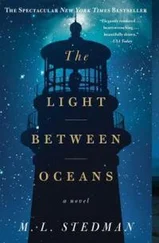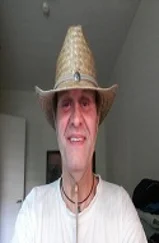THE OFFICE FULL OF WHISPERS, HUMS, AND GLASS. Storage for years of client files. Worn hardwood floors with worn rugs. Outdated copies of the Kentucky Revised Statutes sat on shelves, undisturbed. The women waited with their children and Leah Shepherd met with staff to work on caseload distribution and met with clients to divine what was needed.
The woman told about what happened to her daughter. “The boys were howling and it filled up the school and they didn’t do nothing about it.” Leah flipped through the file, the pleadings, the invoices, the notices, without looking up.
Below the department store’s gleaming fluorescent lights trapped in plastic honeycombs, fathers with children chirped along, the young bleating and bobbing, mothers swayed sweetly as they talk at babies and young husbands with young wives filled up plastic carts with the first supplies for their first homes, first bedsheets and first detergent bottles, impulsively adding a bit of chocolate or a small bag of fruit-flavored candy, and then, handing over weathered bills or signing a credit slip, they slipped out into the evening, the new night, bags in hand, eager to get home and put everything in its place.

Mrs. Shepherd burned a candle on the stove to destroy the dominion of the smell that had crept into the house over the winding years. Yellow-edged books annotated with mildew. A possum waited in the green trash can. Another sip of sherry in secret after a long night. Leah startled herself with her own shadow and in the burrow of her bed, window open, spring again, her mother asking how work was, happy to have her daughter for the night.
The house was alien to Leah, though her parents had lived in it for seventeen years. When she thought about her mother and father rattling around their house, she thought of them in the old house on St. Mildred’s Court. When she thought of Main Street, she thought of the department stores and diners and offices that had been there when she was a child, ones that had long since closed, been sold, or changed their names.
There were two Crow Stations, one superimposed atop the other, one seething with light and color and people walking along real sidewalks in the new rays of the young sun and it was not the one she saw out the window of her office, an office that had been hers for several years, but which always looked unreal and borrowed. In the afternoons, as the work day slowed and the women in the office began to get ready to leave for the day, she would sit and look out the window and try and drink any of that old light that might still be out there, recede into the folds of memory that flickered and cut and consumed so many of her hours.
A work-desk. A placid place. Blank gray Formica and illusory wood-grain. Gnats disappearing into a dream, dust on shoes, rainwater evaporating. In a conference room, ceiling tiles droop damply like a jowl. Old plaster buckles and paint peels in bathrooms, but the grant money is gone, given to minimum payments that must be paid on mortgages to keep the bank at bay. The staff sip tangy cups of coffee from chipped mugs and talk about nothing. Leah nods as she gets a cup herself and slips back into her office, ignoring the flashing light on her phone. A door can be closed and the world beyond extinguished. Look at the computer screen, at the numbers in rows, at the PAGES INTENTIONALLY LEFT BLANK— And then sips her cup of coffee. Eventually you learn to not see the horrid design of the wallpaper peeling around you.
The nonprofit was incorporated as a 501(c)3 in 1988 by a group of Harrod County business people, church leaders, and Judge Whitehead to provide basic services to low income women and their children in the community. The nonprofit’s original director retired in the fall of 2006 and in 2007 Leah Shepherd was announced as executive director. Ms. Shepherd is a Crow Station native. She graduated from Crow Station High School in 1990, Transylvania University in 1994 with a degree in economics and from North Carolina State University with a masters in nonprofit management. Prior to this position, Ms. Shepherd worked for various public interest groups in Lexington and Frankfort. All are very pleased to have Ms. Shepherd—
An old picture of two children, brother and sister, in church clothes standing in front of a fire hydrant, his hair bleached blond and nose sunburned and her arms around his shoulders and her face turned up, mouth open in song, eyes closed, arm out and palm up, cupping pools of sunlight and the boy looking directly at the camera, eyes small and black and wet, mouth set, small and angry.
Mrs. Shepherd couldn’t find the picture she was looking for, the one she wanted to frame and give to Leah for her desk. She called out to her husband who was in the garage, but he didn’t answer. She kept looking, but never found it and never gave Leah a picture for the desk in her office at her new job.
Wooden rockets on strings.
It had been an oppressively scented summer afternoon — lilac and manure in the air like the white seeds of a dandelion released by pursed lips. The brightly colored pictures of men, women, and children in fine clothes that shone like fires. She made up elaborate stories about each picture for Jacob — fantasias of child princes and glittering wooden attendants, parents dying of grief over the death of a child, a beautiful princess, bare and reclined, broken hearted, throwing herself into the hearth upon the death of her betrothed, her teeth small and smile endless, like a shoreline. Towers of pastel blue and orange light. Monstrous men in black robes, lurking in the shadow of crypts and tombs with bright eyes, singing softly in unknown modes, spiriting off young maidens and the young maidens escaping, bloody but free, fleeing across the edge of hills as night fell toward the very end of the kingdom, which is the end of everything, even Leah uncertain what exists beyond the last line of her story. All in a sunset of colors of which she could not even guess the names.
Jacob begged for more stories but Leah left to go find the neighborhood boys out in the streets and yards with hopes that they would let her play and listen to them curse.
When Leah moved back to Crow Station, she was surprised to find that she didn’t know anyone. She expected to see old classmates or people from church that she knew, but it was as though the whole of the town had been replaced. “Everyone you know probably moved away or died,” her mother said one evening when they met for dinner at the new restaurant built on the bypass. Her mother shrugged. Her father was looking for the waitress for a refill. Leah was relieved.
“I still have two brain damages they can’t fix.” Leah wrote and the woman smiled.
Leah was a listener. She would not say a good listener because that implied a level of active compassion that Leah felt she lacked, despite her job and despite her best efforts and despite all of the people who tearfully hugged her and thanked her and all of the people who wrote her letters, even years later, telling her how her help got them back on their feet, despite all of the people she knew who remarked upon her obvious compassion and tireless caring , despite all of this, she didn’t feel it. It didn’t come naturally. Her immediate reaction was something akin to terse irritation. The women wire thin or spilling out of too-tight clothing with rough-mouthed children or children quiet to the point of concern. Drugs, alcohol, men, their curses were the same but impossibly varied in their separate shades. Leah knew what everyone was going to say and listened with concealed impatience. And yet each time was surprised by some unexpected thorn, some quiver of fact that suddenly made the alien face before her real, and Leah crumbled before it, reaching out her hand and promising help. The twinge of pain in her eyes was misinterpreted by the women as gentle sympathy, and they felt relief that they’d been heard. One who left college to care for a mentally handicapped sibling. One who was left by a seemingly good man in the night. One who’d fought against disease. One who’d taken in these children that weren’t hers and just needed to get to her next paycheck so that all could eat.
Читать дальше













